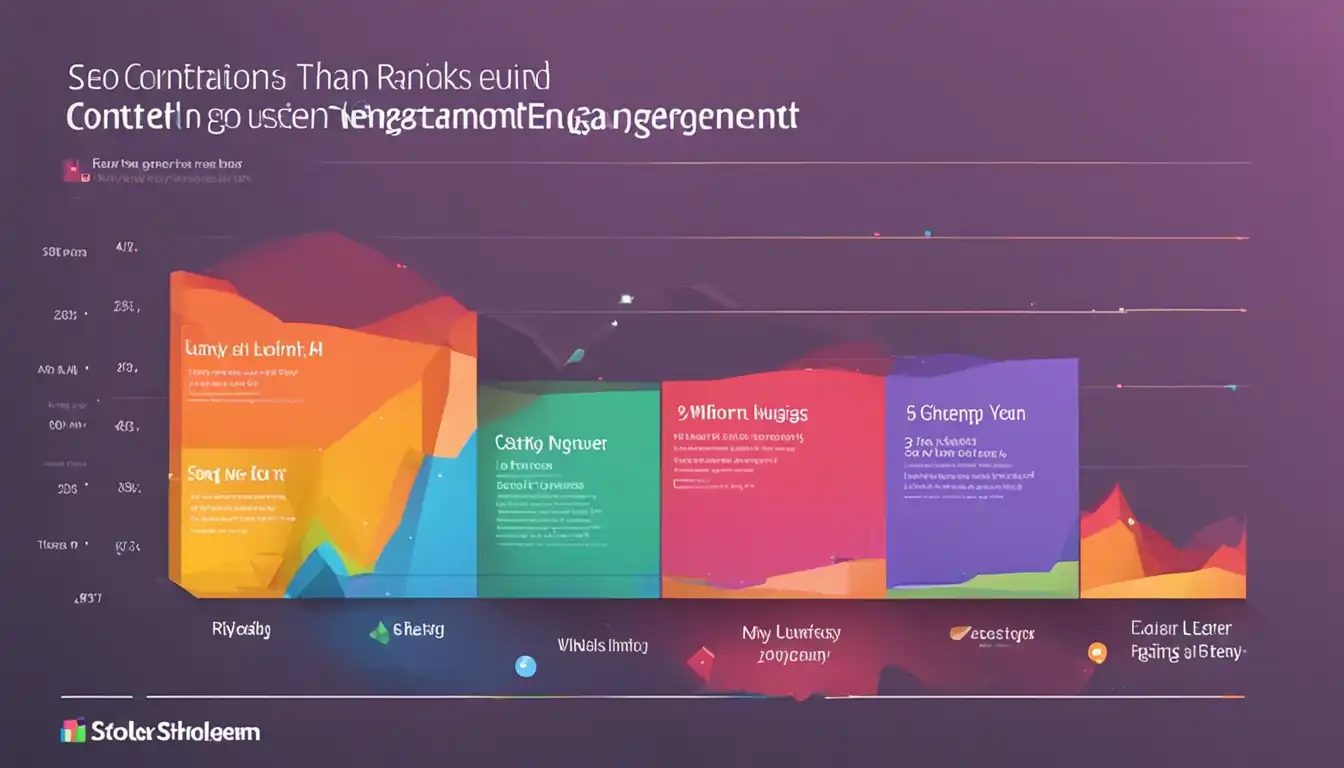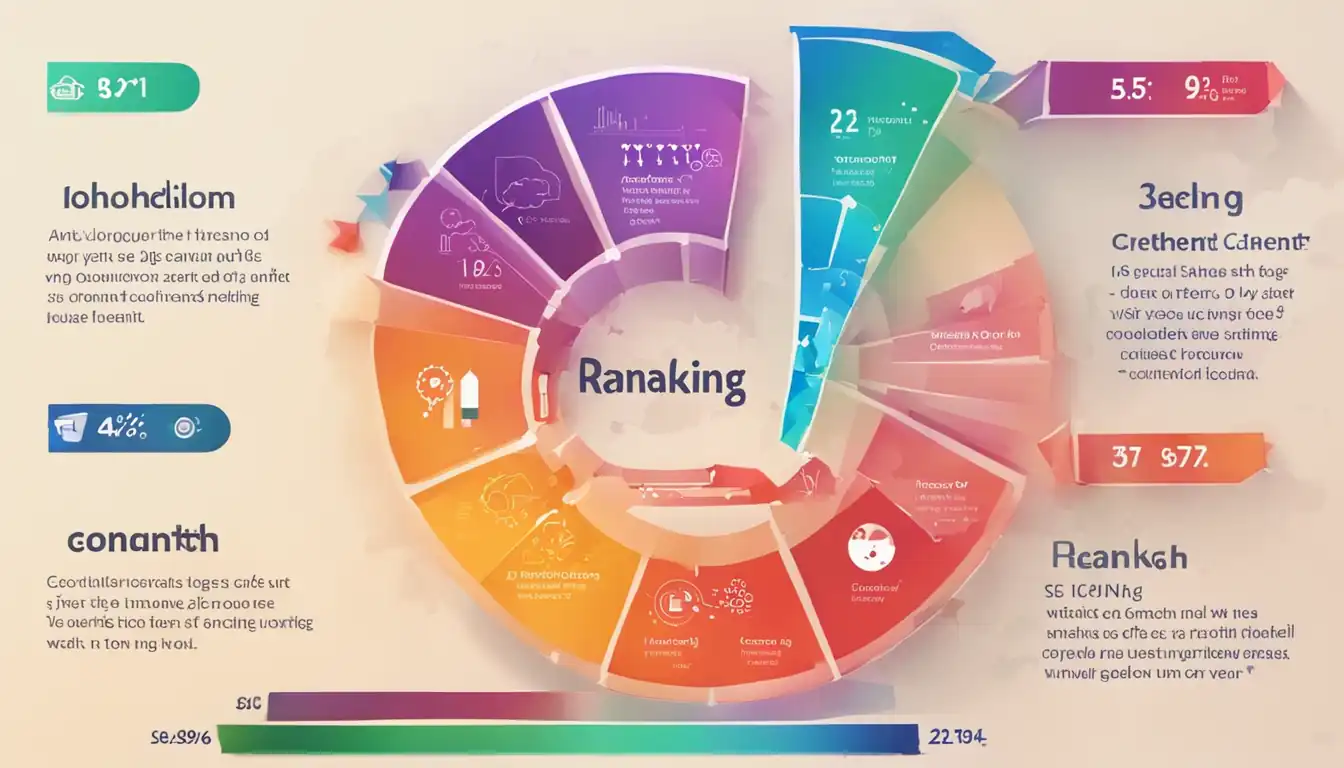The Impact of Content Length on SEO and User Engagement

In the ever-evolving world of SEO, one key factor that often gets overlooked is the impact of content length on both search engine rankings and user engagement. Many marketers focus solely on keywords and backlinks, but the length of your content can play a crucial role in determining its success. So, let's dive into how content length affects SEO and user engagement, and what you can do to optimize it for maximum results.
Understanding Content Length
What is Content Length?
Content length refers to the amount of text on a webpage or blog post. It can vary from short, concise pieces to long, in-depth articles.
Why Does Content Length Matter?
- SEO Impact: Search engines tend to favor longer content as it provides more information and value to users.
- User Engagement: Longer content has the potential to keep users on a page for a longer period of time, increasing engagement.
- Authority and Credibility: In-depth content showcases expertise and authority in a particular topic, building trust with readers.
- Keyword Optimization: Longer content allows for more opportunities to naturally incorporate relevant keywords, improving SEO performance.
"Content length plays a crucial role in both SEO rankings and user engagement. It is essential to find the right balance between quality and quantity when creating content."
Analyzing the Ideal Article Length for SEO
When it comes to optimizing content for search engines, one crucial factor to consider is the length of the article. The debate over the ideal article length for SEO has been ongoing, with various studies and expert opinions providing valuable insights.
Studies on Content Length and SERP Rankings
Several studies have been conducted to determine the impact of content length on search engine rankings. One such study by Backlinko analyzed over 1 million Google search results and found that longer content tends to rank higher in search engine results pages (SERPs). According to their findings, the average word count of a top-ranking article is around 1,890 words.
Another study by SEMrush examined the correlation between content length and SERP positions. They discovered that longer content tends to perform better in terms of organic traffic and backlinks. This suggests that search engines may prioritize longer, more comprehensive articles when ranking webpages.
Expert Opinions and Industry Standards
In addition to these studies, industry experts have shared their insights on the ideal article length for SEO. Many SEO professionals recommend aiming for at least 1,000 words per article to provide sufficient depth and value to readers.
Key Takeaways:
- Longer content typically ranks higher in SERPs
- Aim for at least 1,000 words per article
- Comprehensive articles tend to attract more organic traffic and backlinks
In conclusion, while there is no definitive answer to the question of ideal content length for SEO, evidence suggests that longer, well-researched articles are more likely to perform well in search engine rankings. By focusing on creating high-quality, informative content that meets the needs of users, website owners can improve both their SEO performance and user engagement metrics.
Balancing Quality with Quantity
In the world of content-driven SEO, finding the right balance between quality and quantity is crucial. While it's important to have enough content to provide value to your audience and search engines, it's equally important that the content is of high quality.
The Risk of Overstuffing Words
One common mistake that some content creators make is overstuffing their content with keywords in an attempt to boost their SEO rankings. This practice, known as keyword stuffing, can actually harm your SEO efforts. Search engines have become more sophisticated in detecting this tactic and may penalize websites that engage in keyword stuffing.
Focusing on Value-Driven Content
Instead of focusing solely on word count or keyword density, it's essential to prioritize creating value-driven content for your audience. This means producing content that is informative, engaging, and relevant to your target audience. By providing valuable information that meets the needs of your audience, you can improve user engagement and ultimately boost your SEO rankings.
Remember, when it comes to content length, quality should always take precedence over quantity.
Content Length Across Different Platforms
When it comes to content length, it is important to consider the platform on which the content will be published. Different platforms have varying optimal content lengths for SEO and user engagement. Let's explore the impact of content length across different platforms.
Blogs vs. News Articles: A Comparative Study
Blogs: Blogs typically perform well with longer-form content. Google tends to favor in-depth articles that provide valuable information to readers. Aim for blog posts that are at least 1,000 words or more to improve SEO rankings and keep readers engaged.
News Articles: On the other hand, news articles are best kept concise and to the point. Readers looking for quick updates and information may not have the patience for lengthy articles. Keep news articles between 300-700 words for optimal user engagement and readability.
Social Media Posts and Microblogging Insights
Social Media Posts: Social media platforms like Twitter and Instagram have character limits that restrict the length of posts. However, studies have shown that longer captions on Instagram tend to perform better in terms of user engagement. Strive to create engaging and informative captions within the character limit provided by each platform.
Microblogging: Platforms like Tumblr and Medium allow for longer-form content compared to traditional social media platforms. Microblogging can be a great way to share detailed insights and stories with your audience. Take advantage of these platforms by creating compelling long-form content that resonates with your target audience.
In conclusion, understanding the impact of content length across different platforms is crucial for optimizing SEO performance and enhancing user engagement. Tailor your content length based on the platform you are using to maximize its effectiveness in reaching your target audience.
Strategies to Optimize Your Content Length

When it comes to content length, finding the right balance is key. Here are some strategies to optimize your content length for both SEO and user engagement:
Understand Your Audience: Before determining the ideal content length, it's crucial to understand your target audience. Consider their preferences, behavior, and expectations when consuming content.
Focus on Quality: While length is important, quality should never be compromised. Ensure that your content is well-written, informative, and engaging regardless of its length.
Consider Search Intent: Align your content length with the search intent behind specific keywords. For informational queries, longer-form content may be more suitable, while transactional queries may require shorter and more concise content.
Utilize Visuals: Incorporating visuals such as images, infographics, and videos can help break up text-heavy content and enhance user engagement.
Test and Iterate: Don't be afraid to experiment with different content lengths to see what works best for your audience. Analyze the performance of each piece of content and adjust accordingly.
Tools and Techniques for Measuring Effectiveness
To measure the effectiveness of your content length strategy, consider utilizing the following tools and techniques:
Google Analytics: Track metrics such as bounce rate, time on page, and conversions to gauge how users are interacting with your content based on its length.
Heatmaps: Heatmap tools like Crazy Egg or Hotjar can provide visual insights into how users are engaging with different parts of your content, helping you identify areas for improvement.
A/B Testing: Conduct A/B tests with varying lengths of similar pieces of content to determine which performs better in terms of SEO rankings and user engagement.
SEO Tools: Platforms like SEMrush or Moz can provide data on keyword rankings and organic traffic based on the length of your content compared to competitors.
Adjusting Your Strategy Based on Analytics Feedback
After analyzing the data from various tools and techniques, it's essential to adjust your strategy accordingly:
"Use analytics feedback as a guidepost for refining your approach to content length."
If longer-form content is resulting in higher engagement metrics but lower conversions, consider optimizing for conversion points within the longer pieces.
If shorter-form content is driving more traffic but has high bounce rates, focus on improving the quality and relevance of the shorter pieces.
Continuously monitor analytics data and make iterative changes based on user behavior patterns to ensure that your content length aligns with both SEO best practices and user preferences.
Understanding Content Length
When we talk about content length, we're referring to the number of words or characters in a piece of content. This includes everything from blog posts to social media updates. But why does content length matter? Well, it all comes down to how search engines like Google rank and prioritize content based on relevance and quality.